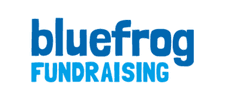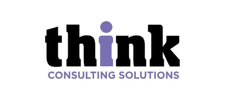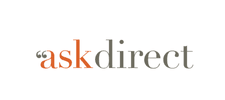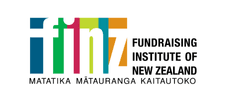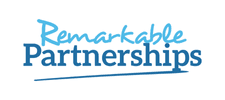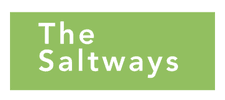The 10 pillars of great relationships between charities and consultants
I shudder when people call us consultants – the word has been dirtied by many of them. Excessive billings, talking down to, ignoring, egotism, over use of buzz words…
- Written by
- John Lepp
- Added
- November 30, 2011

I kind of dry heave when I hear about some relationships my colleagues have with their charitable clients. Bullying, lack of respect, slow or refusing to pay, secretive, micro-managing…
We have no doubt in our mind, when we think about how we work with our clients and how they work with us, that we are very lucky. Largely our expectations are communicated over time, through ‘conversations’ (remember, that’s when people talk naturally to one another like humans…?), through the work we do – and hopefully this will be a guide to you – be you consultant or charity client – on the 10 pillars of great relationships between charities and consultants.
1. Conversation
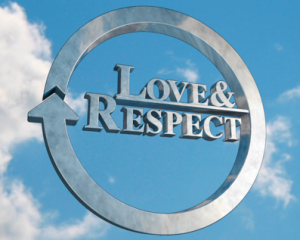
I know I have a tendency to blather on about this, but all great things stem from great conversations. Not an 86-page RFP (request for proposal), not demands of what ‘does all of this cost?’, not 140 character tweets: con-ver-sa-tion, whether you are looking for a new Agency of Record, or are having difficulties with getting payments, or trying to think about some objectives for next year, or aren’t happy with the tone of the emails going back and forth.
Pick up the phone, get in your car and drive, fire up Skype and talk. Chat. The best results do come when you can see facial expressions and body language – but talking, in some form or another is key.
Without conversation, there is no relationship.
2. Love
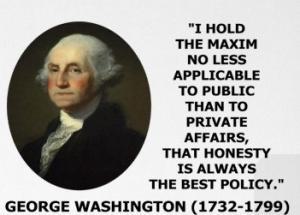
Yeah – I said it. Love. It doesn’t have to be the head-over-heels kind of love and it may not exist the moment you lay eyes upon one another, but, yes, love is a very important pillar in the best relationships. With love, from both parties, comes an unspeakable bond, an unmentioned understanding, a constant desire to remain together and keeping working hard no matter the challenge.
With love, everything is possible.
3. Knowledge
You know stuff, I know stuff. I tell you the things I know about that are relevant (and sometimes not) and you tell me about the stuff you know that is relevant (and sometimes not) – also see pillar 1: conversation. I don’t need to know everything you know and vice versa. The more we understand what we are both up against, be it other staff or departments, or competition, or plans, or history, or design, or other work we have seen and done, the better we will all be. We will all be smarter, better, faster and productive. Don’t come to the table with your cards held close to your chest. Lay it all out.
You have knowledge and I have knowledge. Let’s share.
4. Trust
Trust means knowing that when you say, ‘this stays under the cone of silence’ it does. Trust means that when I say, ‘I’ll have this to you by Friday’ I will. Trust means we all know that, day after day, we do everything with the best intentions and with your best interests at heart. Trust means I tell you the truth, even when it hurts – and often it will, no offence. Trust means that when something just doesn’t seem right – we say it and fix it because (back to pillar 2) we love one another enough to fix it. Trust means that I’ve got your backing and you’ve got mine and we help each other to do better.
Trust means knowing that when you say, ‘this stays under the cone of silence’ it does. Trust means that when I say, ‘I’ll have this to you by Friday’ I will. Trust means we all know that, day after day, we do everything with the best intentions and with your best interests at heart. Trust means I tell you the truth, even when it hurts – and often it will, no offence. Trust means that when something just doesn’t seem right – we say it and fix it because (back to pillar 2) we love one another enough to fix it. Trust means that I back you and you back me and we help each other to do better.
Without trust, forget it.
5. Expectations
This one is often overlooked. I expect you, my clients, to be nice to me. You expect me, your consultant, to not sell your donor list. I expect a half decent coffee when I come to meet you and you expect that I will call if I’m going to be late. Sometimes, it is better to discuss what we expect of each other before we move along too far in our journey. Often we don’t know what we expect until the other party doesn’t do it – then we need to make sure we tell each other in the most loving and caring way we can. I expect that my clients will always do that – and they expect I will listen. See how this works?
I am expecting you will agree – but remember – you can always tell me that I can’t expect that. Which leads me to…
6. Respect
You’ll notice a lot of these pillars are closely connected. Respect is so important. I automatically give anyone I meet one hundred per cent respect, until they show that they don’t do the same. What is respect? To me, it’s an acknowledgement of ability, of needs, or experiences that are similar and different from mine, it’s an age thing, it’s a human thing. There is no room in respect for ego, self-serving, or complete focus only on your needs. This obviously applies to your donors as well – when you respect your donors, often they will respect you back.
Unlike the song, now you know what R-E-S-P-E-C-T means to me…
7. Creativity
We are all creative. We are all shaped by our knowledge, experiences, our lives and our careers. The funny thing though is that creative is scary. Creative is unknown destinations through deep water, creative is ‘outside the box’, especially when it really is inside the box – or better yet, doesn’t even acknowledge there is a box. My job is to approach every one of your problems or challenges creatively. Your job is to approach every one of your problems or challenges creatively.
There is no room for ‘this is what was done last year’ in creativity.
8. Honesty
I have been honest with you when I’ve told you I don’t care about you and your charity and that my only constant wish is to connect your cause to your donors. You have been honest with me when you told me that my idea was not very good. Don’t mistake honesty with being hurtful… This also goes back to respect. Being honest means we say what needs to be said because we know that we will all be something better for knowing it. Being honest means we share our fears, our nervousness, it means we show each other we are human and not perfect.
With loving honesty, the whole world will be changed.
9. Collaboration
Another Agents key word: collaboration. Essentially, that means we work together. It’s not us versus you, it’s not you versus us. It doesn’t mean that when the whole project bombs it’s our fault; it doesn’t mean that we do all the thinking and come to you with the same solution we sold to our other clients – collaboration means we are in the same boat. If it sinks, we all die. If we find the promised land, we all celebrate together. This also loops back to knowledge – I tell you what I know, you tell me what you know and we do amazing stuff: all the time.
If you don’t want to roll up your sleeves and work with your agency, consultant, or client – then don’t bother with them at all.
10. Loyalty
No one speaks of loyalty anymore, so few in our sector even know what it means. The best clients and the best consultants are ones who time and time again put their backside on the line for you, who throw caution to the wind and
constantly have your best interests in their heart. They stand by your side when the sky is falling and even protect you from it.
There isn’t much of it left anymore these days, so many people are in it for themselves – but call us idealists. We believe you need to be idealistic for the very best kind of relationship.











